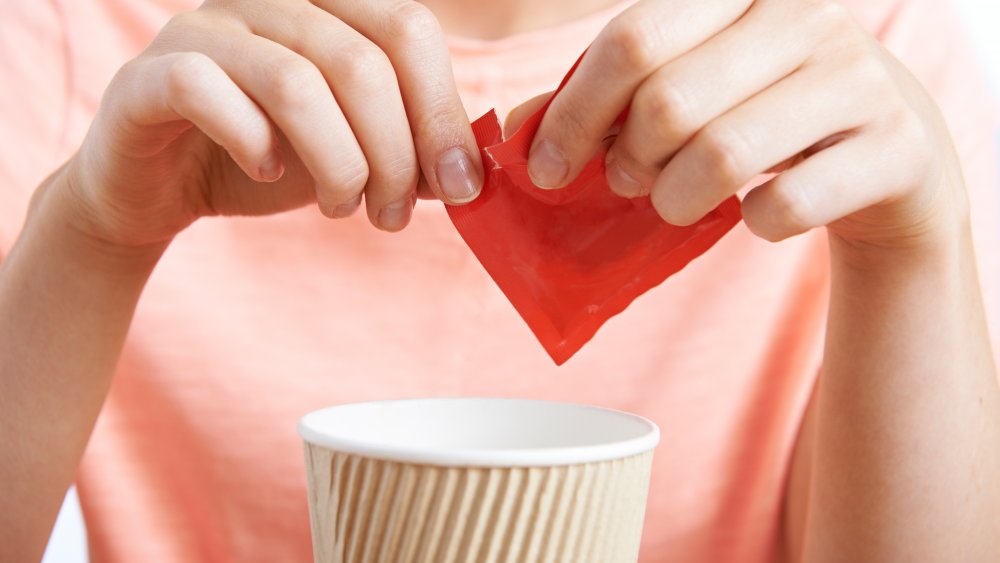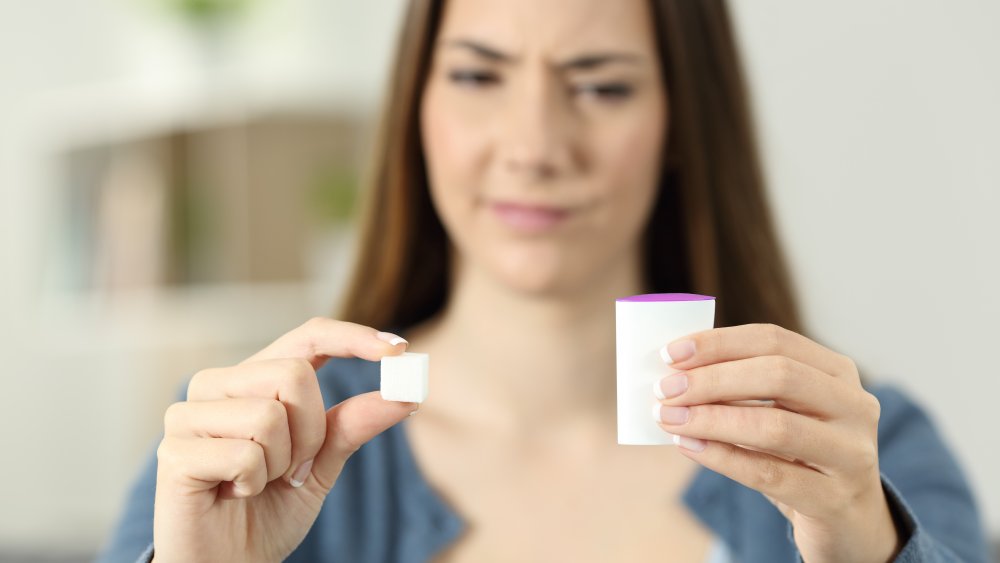Artificial Sweeteners: Are They Really As Bad As You Think?
Artificial sweeteners are also known as sugar substitutes. Artificial sweeteners have zero calories, which might make them look like a good option for anyone looking to lose weight or reduce their sugar intake. But are they safe?
You may have heard that artificial sweeteners can cause cancer, but this is based on studies done in the 1970s that linked saccharin to bladder cancer in rats (via Mayo Clinic). The National Cancer Institute and other agencies, according to the Mayo Clinic, report that there is no evidence that any artificial sweeteners approved for use in the United States cause any health problems — including cancer. These artificial sweeteners include saccharin, sucralose, aspartame, acesulfame, and neotame. All of them have been approved by the FDA (via Harvard Health Publishing).
Harvard Health reports that there are some concerns with artificial sweeteners, however. If you use them regularly, you might taste other foods differently because these sweeteners are much sweeter than sugar. For example, you may find it hard to taste the sweetness in fruits, and you may not want to eat vegetables at all.
What's the evidence on artificial sweeteners and health?
There have been a high number of older studies done on rats that link the use of artificial sweeteners with cancer. However, these studies were done only with rats and focused on bladder cancer. Further studies showed that there is no link between artificial sweeteners and cancer. It seems the link only applies to bladder cancer in rats, not humans, and ultimately, here is no clear evidence of sugar substitutes causing cancer in humans.
The studies that ruled out the cancer risk were done using far smaller amounts of the sweeteners than most people consume, according to Harvard Health. There are no studies on the health effects these chemicals have when consumed in large amounts over a long period of time. However, there are concerns about sugar substitute consumption, because they are used mainly in diet sodas and processed foods or other drinks.
Health concerns with artificial sweetener use
A study published in Diabetes Care found that drinking diet beverages daily was associated with a 36 percent increased risk for metabolic syndrome and a 67 percent greater risk for type 2 diabetes compared to people who do not consume any diet drinks. But this study didn't consider other healthy choices, such as the participant's diet outside of artificial sweetener-filled sodas, or whether they exercised regularly.
As you can see, there needs to be more conclusive studies completed to determine whether artificial sweeteners are safe to consume. There just isn't enough evidence in any of the studies done on artificial sweeteners to determine whether it has adverse health effects.
As usual, moderation is key here since artificial sweeteners are used in processed foods and beverages, which aren't good for you. Stick with more whole foods for a better diet, including plenty of fruits and vegetables.



